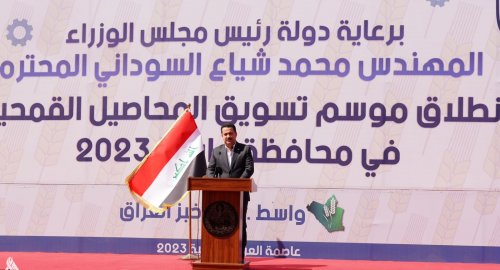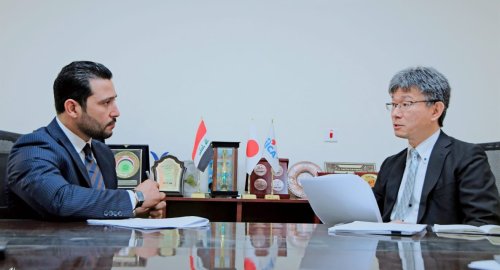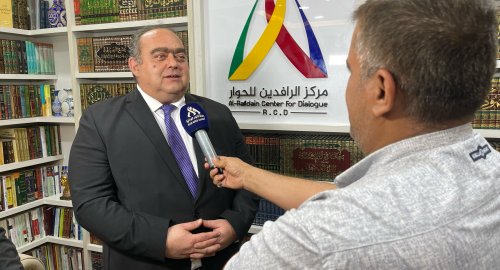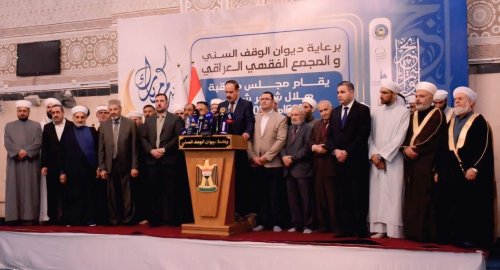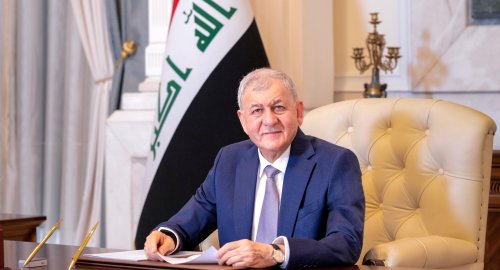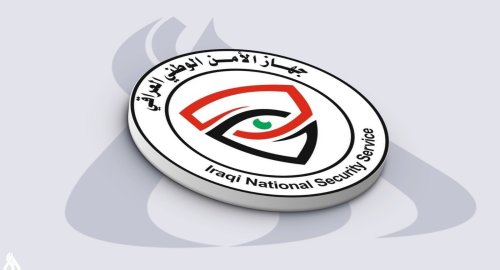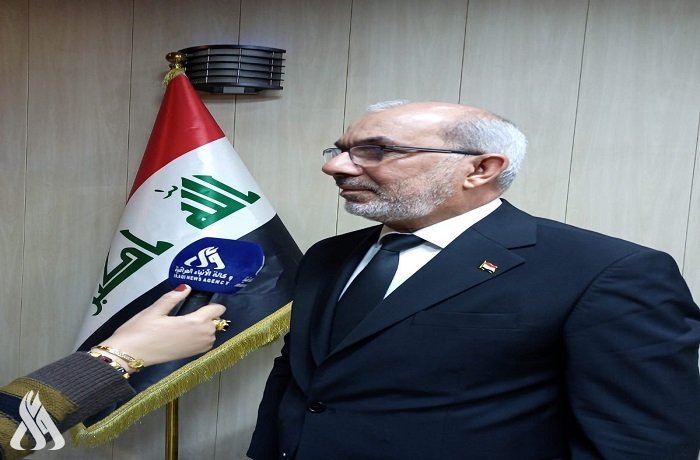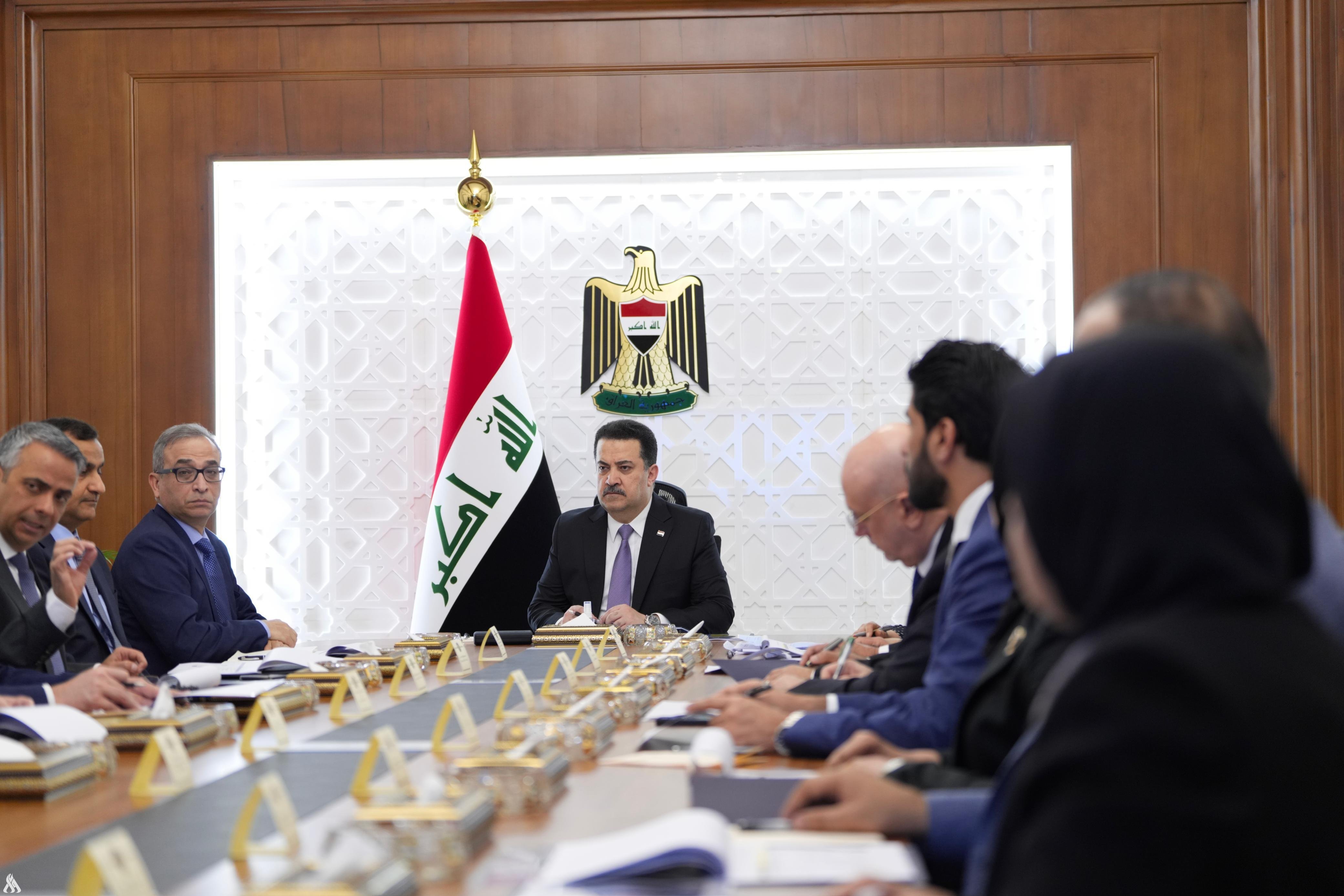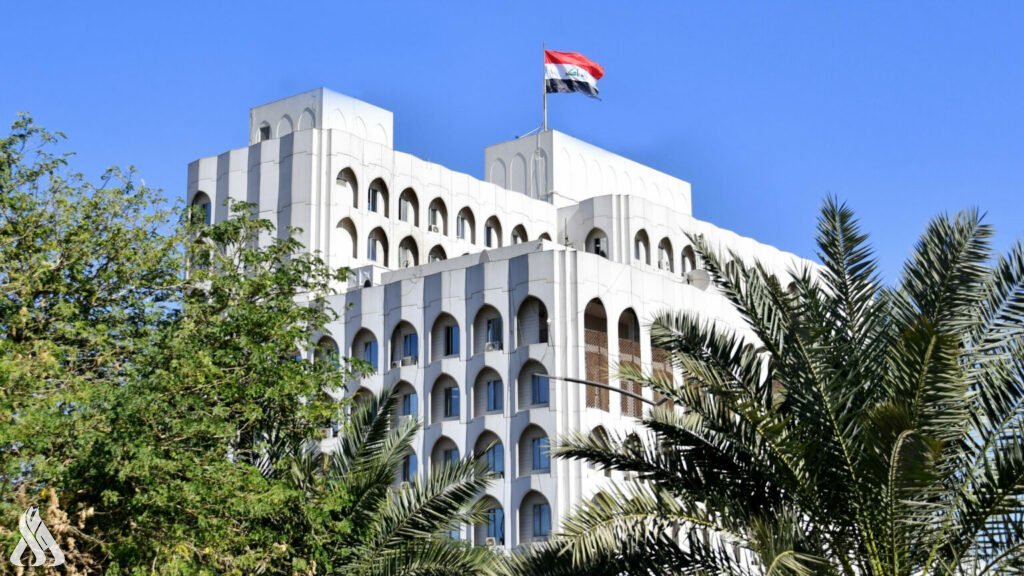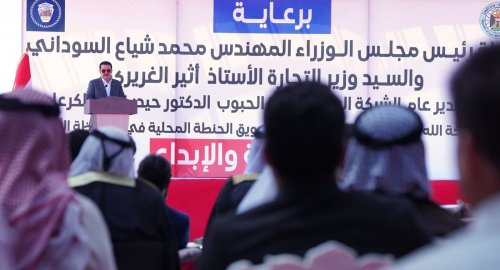
Al-Sudani Launches Wheat Marketing Season in Al-Anbar

- 24-04-2024, 16:56
Baghdad-INA
Prime Minister Mohammed Shia Al-Sudani launched the wheat marketing season in Iraq from Al-Anbar province today. During his visit to the silo of Al-Anbar, this morning, he oversaw the process of receiving the wheat crop from the farmers and personally delivered financial dues in the form of checks to a group of farmers. This action underscores his directive for the prompt payment of dues to farmers selling their wheat, barley, and corn crops.
The media office of the Prime Minister said in a statement received by the Iraqi News Agency (INA) “In his address at the event, Prime Minister Al-Sudani expressed pride in being in Al-Anbar and praised the efforts of Iraqi farmers, and all personnel from the Ministry of Agriculture, the Ministry of Water Resources, and the Ministry of Trade in making the agricultural season a success. He highlighted the pivotal role of Iraqi farmers in achieving food security, equating it in importance to the role of military personnel in securing the country's stability.”
The Prime Minister reaffirmed that the Council of Ministers has set the purchase price for wheat at 850,000 Iraqi Dinars per ton, with a preferential rate next season for lands irrigated with modern irrigation systems. He reviewed details regarding the facilitation of the process of receiving wheat from Iraqi farmers and directed the implementation of measures to expedite the receiving and payment processes.
Furthermore, Prime Minister Al-Sudani announced the procurement of 12,000 modern irrigation systems, which are arriving through various contracts and funding. These systems will be available to farmers at a subsidized price, reducing the cost by 30%.
Key points from Prime Minister Mohammed Shia Al-Sudani's speech at the wheat purchasing season:
Agriculture has been a significant focus for our government, involving legislative coordination with the Council of Representatives and the executive decisions within our purview.
We have prioritized agricultural support, starting with the implementation of agricultural plans.
We directed the adoption of modern irrigation methods to address water scarcity and achieve higher yields per dunam, which provides economic benefits to farmers and meets our needs for this strategic crop.
We have managed to supply locally produced fertilizers, following the inauguration of the urea fertilizer production line and the DAP fertilizer production line in Basra.
For the first time, Iraq has achieved self-sufficiency in fertilizers for our agricultural plan.
We redirected funds previously allocated for fertilizer imports to purchase modern irrigation systems.
Our reliance on agriculture is a strategic choice to activate the economic sector.
The strategic framework agreement with Türkiye represents a significant shift towards comprehensive solutions to the water issue.
According to the water-related strategic framework agreement with Türkiye, we are moving towards constructing dams, lining rivers, and using pipelines to reduce losses, and establishing sewage treatment plants to reuse in agriculture.
The agriculture sector, both in its plant and animal branches, is crucial for food security.
The government is committed to improving the agricultural sector, which employs about 75% of Iraq's population.
Financial allocations have been redirected to the Ministry of Trade, and the government is committed to paying farmers as soon as they deliver their crops to the marketing centers of the Ministry of Trade.
Today, we witnessed farmers receiving checks for their crops, as part of our commitment and support to the agricultural community.
We advise farmers not to deliver their crops to commercial offices, and the Ministry of Trade is committed to ensuring prompt payment procedures are correctly executed.
We have directed all workers to be on alert and work 24 hours a day, ensuring there will be no delays in disbursing payments.
Four marketing centers have been opened in Anbar, and instructions have been given to open a center in Ameriyah Fallujah to save farmers the burden of transportation costs.
KSA: Sunday as the first day of Eid al-Fitr
- International
- 06:40
NSS arrests most dangerous drug dealer in Baghdad
- Security
- 05:16
Fire breaks out at Disney's Epcot theme park as huge plume of smoke rises over resort
- International
- 25/03/23
